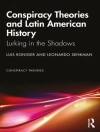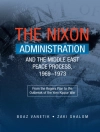The presence of Africans in the German Democratic Republic is very rarely thought of in connection with the experience of exile. Instead, Africans in the GDR are predominantly viewed through the prism of educational and labor migration. While such research has undoubtedly produced valuable insights, it often fails to adequately account for the implicit Eurocentrism, methodological nationalism, and anti-communist bias inherent in Western knowledge production. This study offers a different approach. Through biographical portrayal, it unfolds the life stories of African freedom fighters who lived in exile in the GDR and, ultimately, remained in reunified Germany, with the main case study being a Malawian activist who was expelled from East to West Berlin. Recounting his experiences along with those of some South African exiles, chief among them a former medical worker for the ANC’s armed wing, the study ethnographically reconstructs the multiple entanglements between the “Second” and “Third” worlds from the vantage point of the politically displaced within the concrete historical contexts of African decolonization, the struggle against the Malawian Banda dictatorship, and the struggle against South African apartheid.
Mengenai Pengarang
Sebastian Pampuch, Humboldt-Universität zu Berlin.












